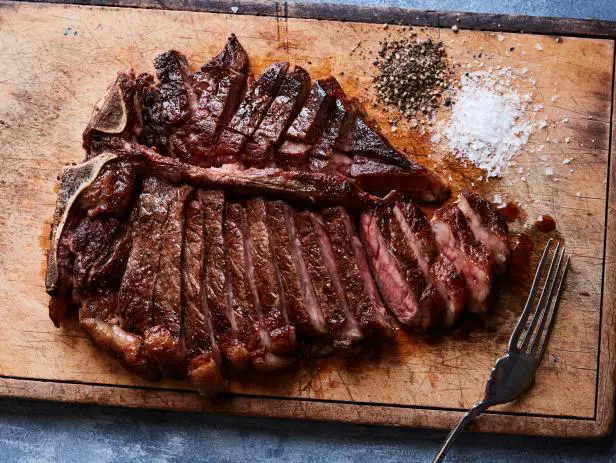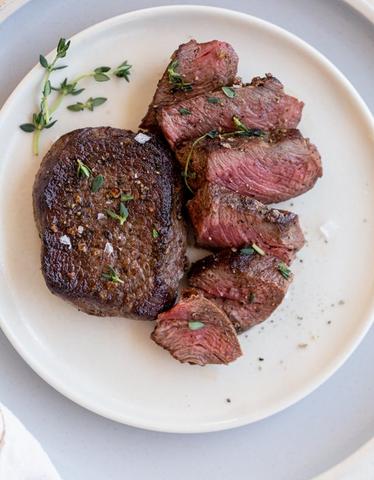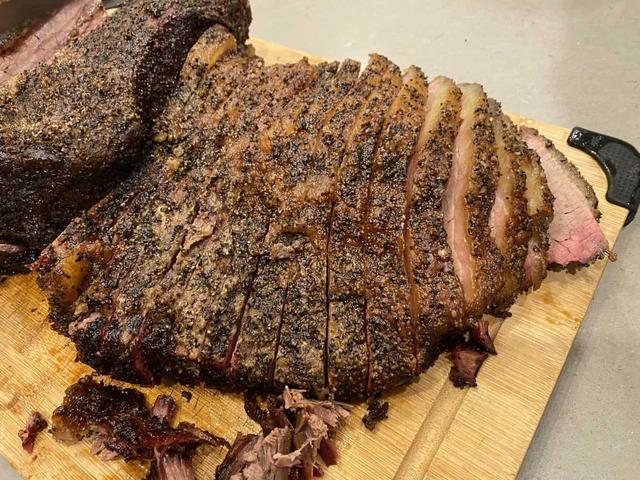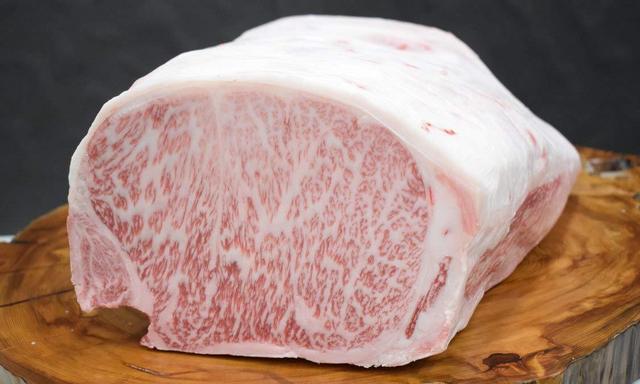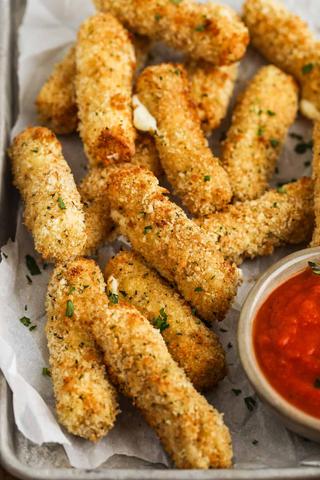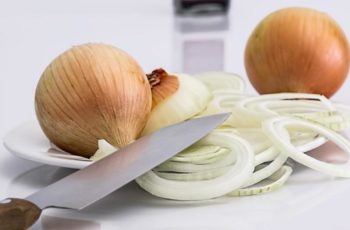
Onions are a staple in many kitchens due to their distinctive taste and smell. But what gives onions their smell? And is there a way to get rid of it? In this blog post, we’ll explore what makes onions smell the way they do, and offer some tips on how to get rid of the smell if you’re not a fan. Keep reading!
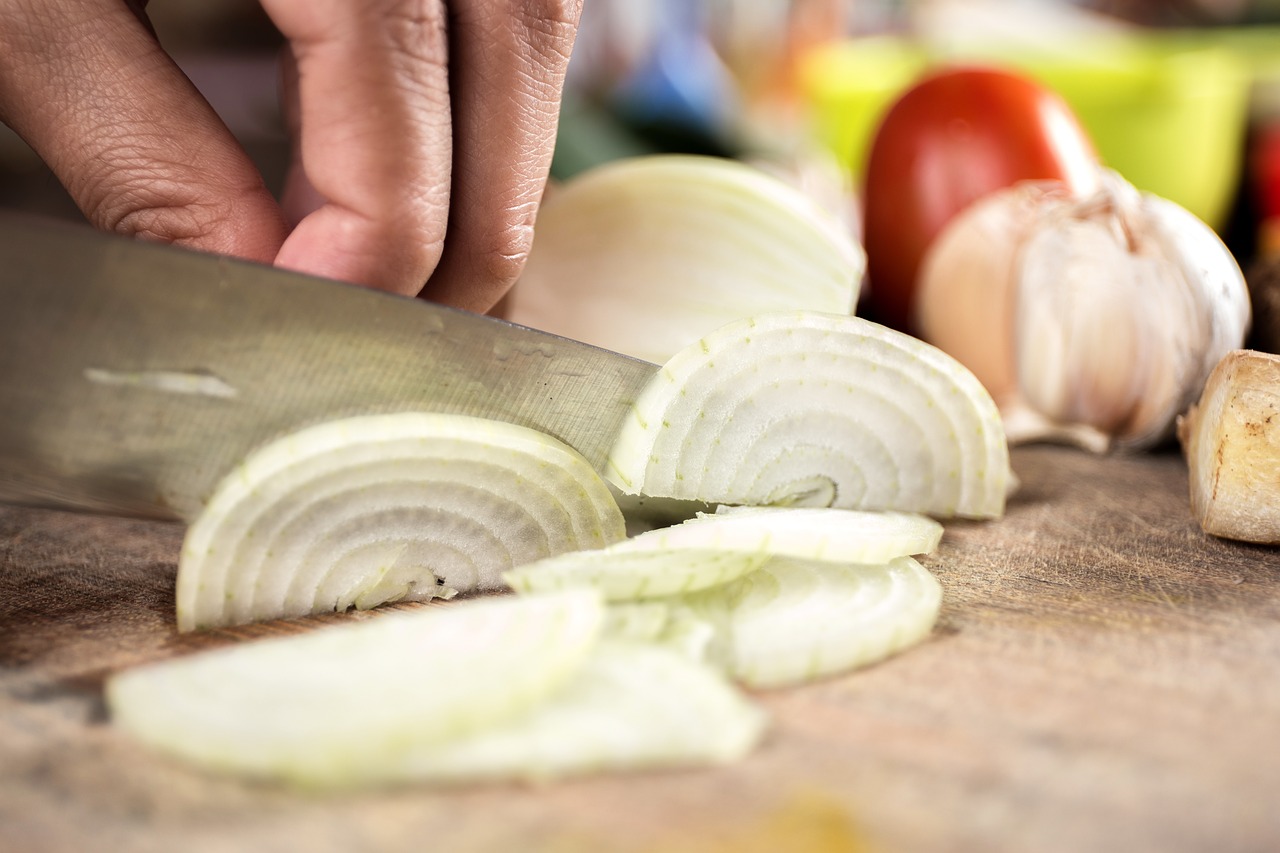
What is onion?
Onion is a member of the Allium family, which includes garlic, shallots, and leeks.
What is the nutritional value of onions?
The nutritional value for 3.5 ounces or 100 grams of the onions is as follows;
- Calories: 40
- Water: 89%
- Protein: 1.1 grams
- Carbs: 9.3 grams
- Sugar: 4.2 grams
- Fibre: 1.7 grams
- Fat: 0.1 grams
Related >> Best Grill Brushes
What are the health benefits of onion?
In addition to their distinctive taste and smell, onions also offer a number of health benefits. Onions are a good source of fiber, vitamins, and minerals. They also contain antioxidants that can help protect against diseases. Studies have shown that onions can help reduce the risk of cancer, heart disease, and diabetes. So, if you’re looking for a healthy way to add flavor to your food, be sure to include some onion!
What Gives Onion Their Distinctive Smell?
The powerful onion smell is a result of the powerful sulfur-containing acids (propenylsuplhenic acid) being broken into lachrymatory-factor synthase and thiosulfate due to the enzyme alliinase. The alliinase then creates the foul-smelling sulfurous smell of onions. Alliinase, while responsible for the smell, is also responsible for many health benefits.
The Allinase in Allums and Why They Smell?
When you cut an onion, two different groups of enzymes are activated and start to work. One group breaks down sulfoxides into sulfenic acids. The second group oxidizes these sulfenic acids into sulfonic acids. These reactions release the characteristic onion smell.
The first group of enzymes is alliinase and it’s found in the cytoplasm of cells in the plant. This enzyme is what gives onions their distinct smell. When an onion is cut or crushed, alliinase is activated and starts to break down sulfoxides into sulfenic acids. These reactions release the characteristic onion smell.
The second group of enzymes is called peroxidases and they’re found in the vacuoles of cells in the plant. Peroxidases oxidize sulfenic acids into sulfonic acids. These reactions don’t release any odor.
The alliinase enzyme is also responsible for many of the health benefits of onions. Studies have shown that alliinase has anti-inflammatory, antimicrobial, and antioxidant properties.
Why Onions Smell More When Cutting Them
When an onion is cut, the alliinase enzymes are activated and start to break down sulfoxides into sulfenic acids. These reactions release the characteristic onion smell. The more you cut an onion, the more alliinase is activated and the stronger the smell becomes.
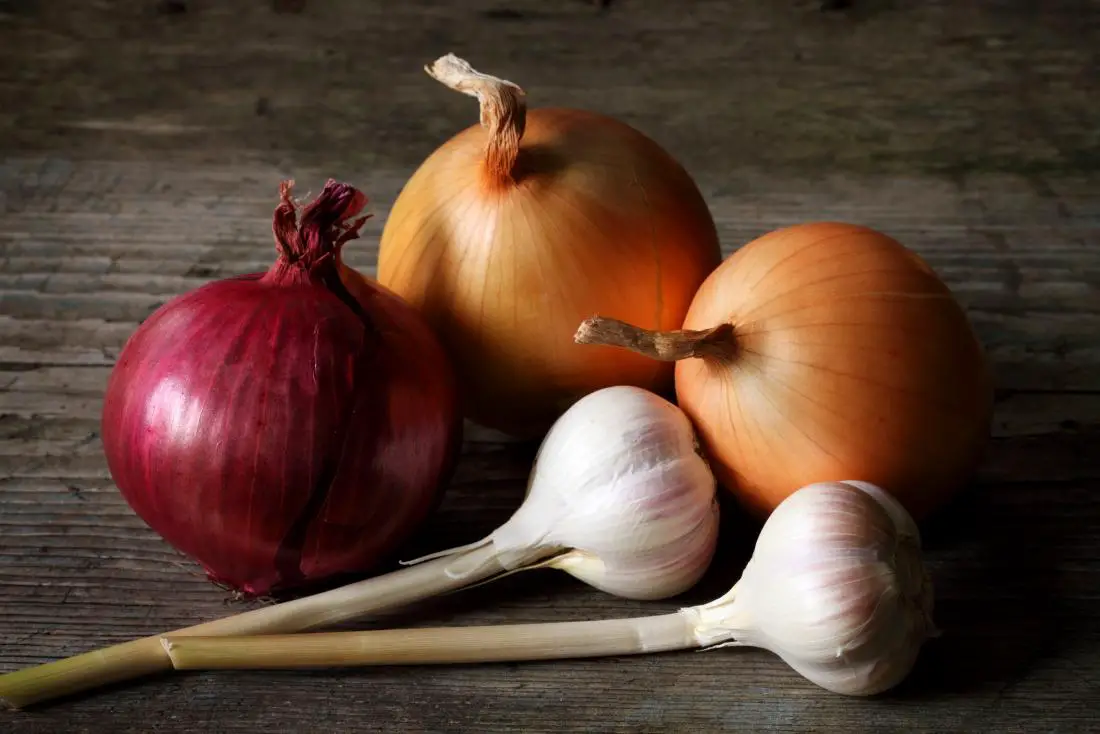
Tips to Make Onions Stink Less
Slice Cold Onions: Alliinase is activated when an onion is cut or crushed. If you slice onions while they’re cold, the alliinase enzymes will be less active and the onions will smell less.
Cut off the Onion Roots: The roots of an onion contain more alliinase than the rest of the onion. If you cut off the roots before slicing the onion, it will smell less.
Use Water: Soak the onion in water for a few minutes before cutting it. This will help to reduce the release of sulfurous gases.
How to Remove Onion Smell From Your Hands:
Method One: Soap and Salt Scrub
Wet your hands and add a generous amount of soap to them.
Add a tablespoon of salt to the soap and scrub your hands together for a minute or two.
Rinse your hands well with water.
Method Two: Acid Wash
Fill a bowl with equal parts vinegar and water.
Soak your hands in the mixture for a few minutes.
Rinse your hands well with water.
Method Three: Stainless Steel Rub:
Rub your hands on a stainless steel sink or faucet for a minute or two.
Rinse your hands well with water.
What are the potential downsides of the onions?
The potential downsides of onions are that they may cause bad breath or heartburn. They may also make you cry when you cut them. If you have a sensitive stomach, you may want to avoid eating onions. Some people are also allergic to onions. If you’re allergic to onions, you should not eat them.
How can you properly store the onions?
Onions can be stored in a cool, dark place. They should be stored in a well-ventilated area. Onions can also be stored in the fridge, but they will not last as long. If you’re going to store onions in the fridge, make sure to put them in a plastic bag so they don’t absorb any smells from other foods.
What is the shelf life of the onions?
Onions can last up to two weeks in a cool, dark place. If they’re stored in the fridge, they will last up to a month. Once onion is cut, it will only last a few days.
How to tell if the onions are bad?
If onions are bad, they will smell bad. They may also have a slimy texture. If you’re not sure if an onion is bad, it’s best to throw it out.

How do you get rid of garlic or onion breath?
There are a few things you can do to get rid of garlic or onion breath. You can chew on fresh parsley, mint, or basil leaves. You can also drink lots of water or eat yogurt. You can also try brushing your teeth and tongue with baking soda.
Delicious Onion Recipe:
Caramelized onions
Ingredients:
- 1 tablespoon olive oil
- 1 tablespoon butter
- 2-3 onions, sliced
- 1 teaspoon sugar
- Salt and pepper to taste
Instructions:
Heat the oil and butter in a large skillet over medium heat. Add the onions and cook until they’re soft and translucent. Add the sugar and continue cooking until the onions are golden brown. Season with salt and pepper to taste. Serve immediately. Enjoy!
How to grow onion:
Onions are easy to grow and don’t require much maintenance. They can be grown in most climates and only need full sun and well-drained soil. To plant onions, simply dig a small hole, drop in an onion seed, and cover with soil. Water the onion seedlings regularly. When the onions are big enough to harvest, pull them up by the roots and allow them to dry in the sun for a few days before storing them in a cool, dark place.
Fun facts about onion:
- The average onion contains about 10% of the daily recommended intake of Vitamin C.
- Onions are a member of the lily family, which also includes garlic, shallots, leeks, and chives.
- Onions were first cultivated in central Asia over 5,000 years ago.
- The Egyptians believed that onions contained magical powers and often used them as offerings to their gods.
- The Romans believed that onions could cure just about anything and would often carry them around with them for good luck.
- The ancient Greeks believed that onions could make you strong and brave and often fed them to their athletes before competitions.
- In some parts of India, it is considered bad manners to eat onions in public because they are thought to cause bad breath.
- The world’s largest onion was grown in New Zealand and weighed in at a whopping 10 pounds, 3 ounces!
- Onions are the second most popular vegetable in the world, after potatoes.
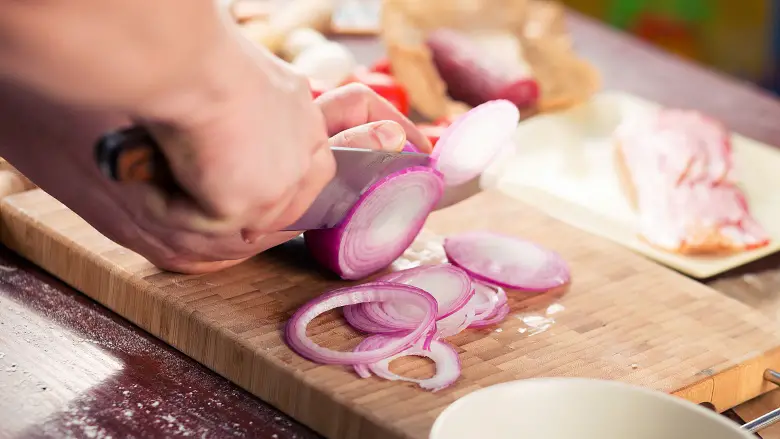
FAQs
What causes your mouth to smell like onions?
When you eat onions, the alliinase enzymes are activated and start to break down sulfoxides into sulfenic acids. These reactions release the characteristic onion smell. The more you eat onions, the more alliinase is activated and the stronger the smell becomes.
Why does my mouth smell for hours after eating onions?
When you eat onions, the alliinase enzymes are activated and start to break down sulfoxides into sulfenic acids. These reactions release the characteristic onion smell. The more you eat onions, the more alliinase is activated and the stronger the smell becomes. The onion smell can linger in your mouth for hours after eating onions.
How can I get rid of onion breath?
There are a few things you can do to get rid of onion breath: drink plenty of water, brush your teeth, and use mouthwash. You can also try cutting back on onions or avoiding them altogether. If you can’t seem to get rid of the onion smell, see your dentist or doctor for help.
Does Cooking Affect Onion’s Flavor?
Cooking onions can affect their flavor in a few different ways. Onions that are cooked for a long time will generally be sweeter than those that are cooked for a shorter time. Onions that are roasted or grilled will have a more intense flavor than those that are boiled or sautéed. Onions that are caramelized will be the sweetest of all.
Do Different Types of Onions Have Different Flavors?
Yes, different types of onions can have different flavors. Sweet onions, like Vidalia onions, are going to be sweeter than other types of onions. Red onions tend to be a little bit more pungent than white or yellow onions. Shallots and scallions have a more delicate flavor than other onions.
Can You Taste the Difference Between Fresh and Frozen Onions?
Yes, you can taste the difference between fresh and frozen onions. Fresh onions have a crisp texture and a milder flavor than frozen onions. Frozen onions are more pungent and have a softer texture.
Why do garlic and onions cause bad breath?
Garlic and onions cause bad breath because they contain sulfur-containing compounds. When these compounds are broken down by the body, they release sulfur-containing gases. These gases are what cause bad breath. Cutting back on garlic and onions can help reduce bad breath. Brushing your teeth and using mouthwash can also help.
Learn More About Grilling
If you want to learn more about grilling, check out these other helpful resources!

